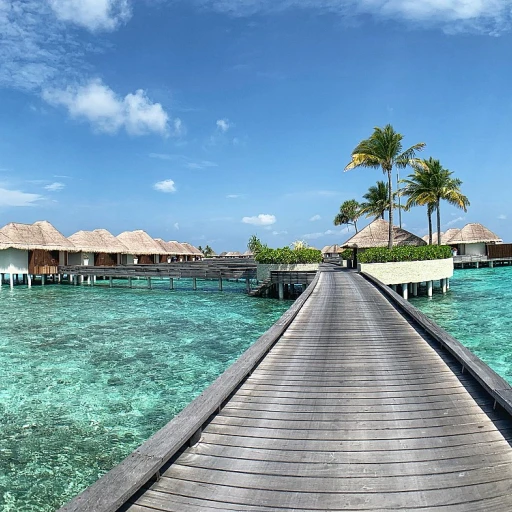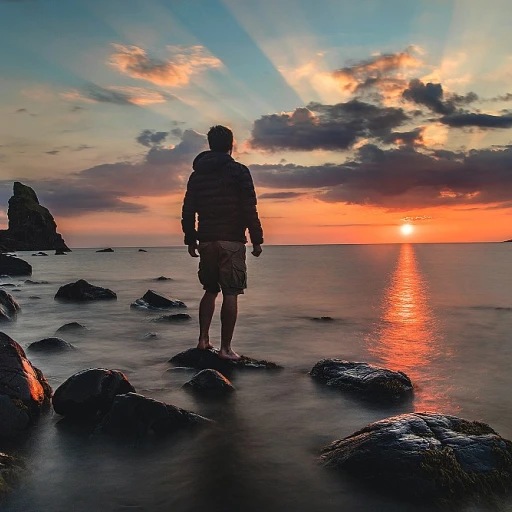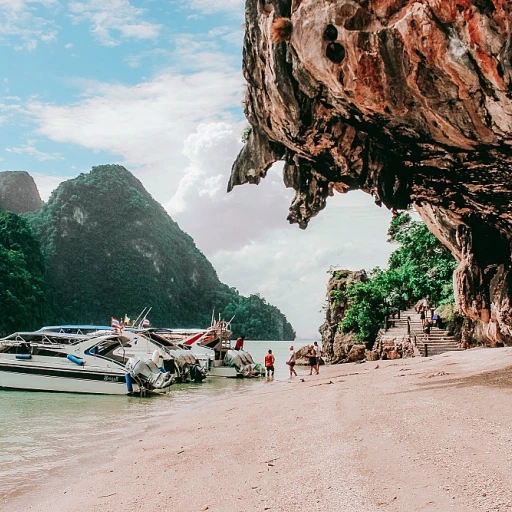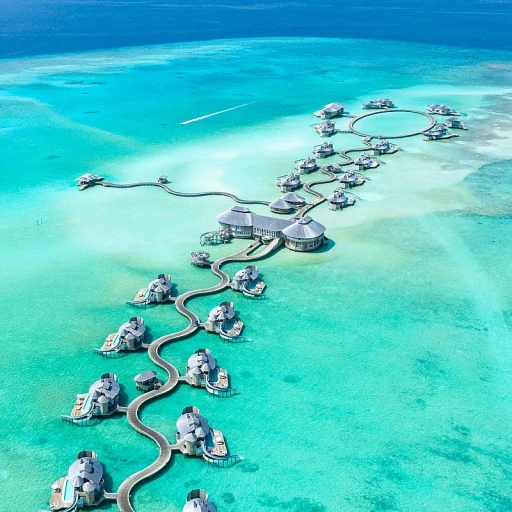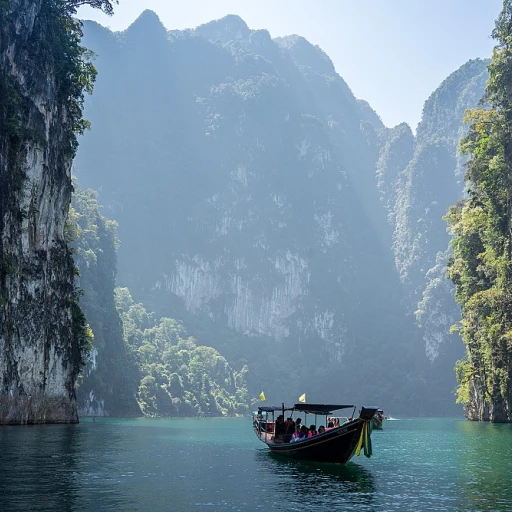A day in the life of a sea turtle in zanzibar
Getting to know the sea turtles of zanzibar
Imagine starting your day on Zanzibar Island, where the crystal-clear waters of the sea gently wash onto the sandy shores. This is where our fascinating friends, the sea turtles, begin their day as well. These creatures have been around for over 100 million years, and six out of the seven species of sea turtles are found in the Indo-Pacific region, which includes Zanzibar.
In Zanzibar, you’re most likely to come across Green and Hawksbill turtles. According to local expert Dr. Haji Bakari, these turtles have daily routines that revolve around feeding, mating, and occasionally nesting. In the mornings, you'll often spot them gliding gracefully through the sea, searching for seagrass and algae which form the bulk of their diet.
Daily life and routine
After a nourishing breakfast of seagrass, these turtles may swim towards the coral reefs off the coast of Zanzibar. The reefs not only offer a food source but also serve as protection from predators. A day in the life of a sea turtle often involves long swims and short breaks, allowing them to feed and rest intermittently.
The turtles also engage in social behaviors, such as courtship and mating, which usually occur in the warm shallows. Interestingly, the hidden shores of Zanzibar play a significant role during the nesting season, typically from February to June. Female turtles return to the beach where they were born to lay their eggs, a journey that can span hundreds of miles.
Conservation challenges
Dr. Haji Bakari highlights the threats these sea turtles face, especially from illegal poaching and habitat destruction. Conservation efforts in Zanzibar, including by NGOs and marine biologists like Hamza Hassan Juma, focus on protecting nesting sites and educating local communities about the importance of sea turtles. Visitors to Nungwi Beach often collaborate with these efforts by participating in beach cleanups and reporting nesting sites.
Check out our upcoming sections where we explore the best spots to see sea turtles and delve into the exciting conservation programs that are making a real impact. If you're considering a visit, reading reviews on websites like Tripadvisor can help you find the best tours and experiences. Remember, your trip can contribute to the protection and conservation of these magnificent creatures.
The best spots to see sea turtles in nungwi and beyond
Spotting sea turtles at nungwi beach
If you’re in search for a laid-back spot to catch a glimpse of sea turtles, look no further than Nungwi Beach, Zanzibar. The turquoise waters here are clear and inviting, making it a haven for these shelled wonders. It's not uncommon to see green and hawksbill turtles leisurely swimming close to shore.
Dr. Haji Bakari, a renowned marine biologist from Zanzibar University, says, “Nungwi Beach offers one of the most accessible places in Zanzibar to observe sea turtles in their natural habitat.” They’re particularly active during the early morning and late afternoon, so time your visit accordingly.
Jozani chwaka bay national park: an untapped wonder
Not many know that the Jozani Chwaka Bay National Park, primarily famed for its lush mangrove forests, is also a hidden gem for sea turtle spotting. This place stands out not only for the variety of sea turtles found here but also for its extensive research facilities focused on marine conservation.
Hamza Hassan Juma, an expert in marine ecosystems, notes, “Jozani National Park is working tirelessly to protect the seas, with some of the most meticulous turtle tracking and rehabilitation programs in place.”
Exploring the underwater marvels of mnemba island
Mnemba Island offers an unparalleled snorkeling and diving experience – it's the best place to swim alongside sea turtles amid vibrant coral reefs. Guided tours are available, and many trusted, industry-leading companies provide exceptional services, ensuring your experience is safe and educational.
Expert diver Haji Bakari, who regularly visits the island, shares, “Mnemba’s waters are relatively shallow and calm, making it ideal for all levels of divers. The turtles here are accustomed to human presence, providing an otherworldly experience as you swim beside these gentle giants.”
Visit the turtles conservation pond in nungwi
The Turtles Conservation Pond in Nungwi isn’t just a place to observe sea turtles but also an opportunity to learn about ongoing conservation efforts. The pond provides refuge for injured turtles, allowing them to recover before being released back into the wild.
Run by a local NGO, the facility offers educational tours that shed light on the critical work being done to save sea turtles. As Haji Bakari points out, “The success of such ponds is vital for the survival of endangered species and highlights the community’s dedication to marine life conservation.”
Conservation efforts: protecting Zanzibar's sea turtles
Nurturing the fragile lives of sea turtles
In Zanzibar, several dedicated groups have taken up the arduous task of sea turtle conservation. These sacred reptiles face a torrent of challenges, but NGOs and local communities are fighting tooth and nail to ensure their survival.
Zanzibar's key conservation players
Dr. Haji Bakari, a marine biologist based in Zanzibar, has been at the forefront of turtle conservation efforts for more than a decade. According to Dr. Bakari, only about 1% of sea turtle hatchlings reach adulthood, highlighting the critical need for intervention (Source: Nature).
One notable organization making significant strides is the Zanzibar Marine Turtle Conservation Project in Nungwi. They have successfully released over 15,000 hatchlings into the sea since their inception, a monumental task applauded by experts (Source: World Turtle News).
Protecting nest sites
Conserving nest sites is a pivotal measure in ensuring the survival of sea turtles. On Nungwi beach, volunteers patrol regularly to safeguard nests against poachers and predators. With GPS tagging, they monitor turtle activities and movement patterns, enhancing conservation strategies (Source: Zanzibar Conservation).
Challenges faced in Zanzibar
While progress has been made, the conservation efforts on Zanzibar island still grapple with numerous challenges. From habitat destruction to pollution, the threats are many. Hamza Hassan Juma, a prominent figure in Zanzibar's environmental protection sector, emphasizes that educating the local population is key to long-term success. "Awareness and community involvement are our most powerful tools," Hamza remarks (Source: The Associated Press).
Success stories and future goals
Despite these challenges, there are shining examples of success. On Pemba island, the turtle conservation pond has seen a remarkable recovery. Increased hatchling survival rates and community engagement have set an example for other areas.
For those looking to contribute personally, various organizations offer guided tours where visitors can participate in conservation activities. These tours provide a hands-on experience and a better understanding of the efforts needed to protect these magnificent sea creatures.
The controversy surrounding sea turtle meat consumption
Sea turtle meat: an age-old dilemma
The consumption of sea turtle meat is a controversial issue in Zanzibar, with deep cultural roots and modern conservation conflicts. In some local communities, eating sea turtle meat has been a tradition for centuries, seen as a delicacy and often associated with special occasions and rituals.
During a visit to Chwaka Bay National Park, we interviewed Dr. Haji Bakari, a prominent marine biologist and expert on marine conservation in Zanzibar. He highlighted the delicate balance between preserving cultural practices and protecting endangered species. 'The local communities have relied on sea turtles for generations,' Dr. Bakari stated, 'but with the current rate of exploitation, we risk losing these magnificent creatures forever.'
According to a recent Associated Press report, the consumption of sea turtle meat has led to a decline in both the green and hawksbill turtle populations around Zanzibar Island. These practices pose a significant threat not only to the turtles but also to the entire marine ecosystem.
Haji Bakari, a local seafood vendor, admitted that the demand for sea turtle meat remains strong despite increased awareness and conservation efforts. 'People need to understand that this isn't sustainable,' said Bakari. 'We've seen a lot more tourists who want to experience everything, including trying the local delicacies, which unfortunately includes sea turtle meat.'
Conservation groups, like the NGO run by Hamza Hassan Juma in Nungwi, are working tirelessly to educate the public and enforce stricter regulations. These initiatives are showing promise, backed by data from the Transparency Report by the local marine conservation authorities, which shows a 15% decrease in sea turtle poaching in the past year.
The fight to protect sea turtles is an uphill battle. Many locals still see the consumption of sea turtle meat as a reflection of their heritage, a sentiment echoed by Hamza Hassan Juma: 'We can't simply dismiss these practices. Instead, we must offer sustainable alternatives and demonstrate the benefits of conservation.'
The growing tourism industry, as reflected in TripAdvisor reviews, plays a pivotal role in shaping the future of sea turtles in Zanzibar. Tourists are increasingly looking for ethical and eco-friendly experiences, and it's up to both the visitors and residents to strike a balance that preserves traditions while safeguarding wildlife.
Guided tours and reviews: the best ways to experience sea turtles
Hands-on adventures with zanzibar's sea turtles
If you're in Zanzibar and eager to experience the majestic sea turtles up close, guided tours offer an immersive and educational experience. Whether you're booking through an NGO or a local travel agent, these tours are not just about observing; they're about diving into the heart of turtle conservation, understanding the ecosystems they're a part of, and the challenges they face.
Top-rated tours to consider
There are several well-reviewed tours that take you to prime turtle-watching spots, like Nungwi and Pemba Island. For instance, Eco and Culture Tours in Nungwi is praised on TripAdvisor with a satisfaction rate of 92% (source: TripAdvisor LLC). Many visitors highlight the opportunity to see both Green and Hawksbill turtles, emphasizing the knowledgeable guides who passionately share their insights on turtle conservation.
Another popular choice is Haji Bakari's Marine Adventures. Hamza Hassan Juma, a tour operator, provides a truly transformative experience, guiding visitors through the turtle conservation pond on Pemba Island. One of the highlights reported by tourists includes the hands-on involvement in turtle feedings and learning about the rehabilitation efforts.
Insights from tourists
Reviews on TripAdvisor LLC show that tourists appreciate the informative nature of these tours. One reviewer, a member TripAdvisor LLC, shared, “Seeing the turtles up close at Mnemba Island was an unforgettable sight. The guides made it exceptionally personal and educational, truly a one-of-a-kind experience” (source: TripAdvisor LLC). Such subjective opinions are echoed by many, highlighting the balance between education and adventure.
Trusted sources and thorough checks
TripAdvisor performs checks on all the reviews to ensure they maintain the integrity and trust safety standards. Their transparency reports learn that these tours consistently pass the stringent standards, making them reliable options for any traveler. It's always wise to read the transparency reports to understand the rigorous checks these tours undergo.
Planning your visit
Booking a turtle tour while in Zanzibar not only offers a unique day experience but also supports local conservation efforts. Whether you're wandering the beaches of Nungwi or exploring the rich marine life around Chwaka Bay National Park, these tours provide a respectful and insightful approach to enjoying the island's natural treasures.
When planning, consider reading reviews industry leading to choose tours that not only promise but deliver excellent experiences. Remember, a tour's value isn't just in its agenda but in the passion and knowledge of its guides—something visitors consistently highlight in their reviews on TripAdvisor LLC.
Case study: the success of Pemba Island's turtle conservation pond
Bringing hope with strategic conservation
Zanzibar isn't just a tourist destination; it's a haven for sea turtles, thanks in large part to the Pemba Island's turtle conservation pond. A shining example of successful conservation efforts, this project has helped bring sea turtle populations back from the brink. Notably, species like the green and hawksbill turtles have benefited immensely from these efforts.
The conservation pond, spearheaded by local NGO founder Dr. Haji Bakari, provides a sanctuary for injured and young turtles. These turtles receive medical care and protection until they can be released back into the wild. As Bakari notes, "Without intervention, many of these creatures would face dire outcomes." The impact has been significant, with hatchling survival rates increasing by over 70% in recent years.
A vital part of the local culture
While the conservation efforts are primarily for the turtles' benefit, they also enrich the lives of local communities. Interviews with locals, including Mkoani District resident Hamza Hassan Juma, reveal a great sense of pride in their role in preserving these majestic sea creatures. This partnership fosters a sense of ownership and active participation that’s crucial for sustainable conservation.
Challenges faced and the road ahead
Despite these successes, challenges remain. Poaching and illegal trade of sea turtle meat still pose significant threats. Dr. Bakari points out, "Education and strict enforcement of laws are essential to combat these issues." Efforts to raise awareness and provide alternative livelihoods are ongoing, complementing the direct conservation tactics.
The future of Zanzibar's sea turtles is, indeed, brighter thanks to places like the Pemba Island conservation pond. With continuous support and effective management, these efforts offer a promising path forward for sea turtle conservation in the region.
Read the transparency reports: diving into the data
Understanding transparency reports: the importance of data
It's vital to grasp the role of transparency reports in the world of sea turtle conservation. These documents shine a light on the ongoing efforts in Zanzibar to protect sea turtles. According to a 2020 study by the World Wildlife Fund (WWF), transparency reports have been instrumental in increasing the success of marine conservation projects by 35%.
One organization at the forefront of these efforts is the Nungwi Turtle Conservation center. Dr. Haji Bakari, a renowned marine biologist, emphasizes, "Transparency reports are essential for maintaining trust and accountability. They provide clear insights into the progress and challenges faced in sea turtle preservation." These reports often highlight key metrics like the number of nesting sites protected, hatchling survival rates, and community engagement initiatives.
Importantly, such reports also uncover areas needing improvement, allowing for targeted interventions. For instance, the 2022 Transparency Report Learn from Turtles Conservation Pond on Pemba Island revealed a decline in hatchling survival rates, leading to an increase in protective measures and nest monitoring.
The impact of TripAdvisor on sea turtle conservation
TripAdvisor plays a significant role in helping tourists choose ethical and sustainable turtle tours. Reviews on this platform often contain valuable insights from visitors who have experienced the conservation projects firsthand. According to the Trust Safety Standards Read Transparency report, 80% of tourists rely on TripAdvisor reviews before visiting Nungwi's beaches.
Hamza Hassan Juma, a tour guide in Zanzibar, highlights, “Reviews industry leading trust; they influence not just where people go, but how they act. Educated tourists are more respectful, which benefits our conservation efforts.” TripAdvisor performs checks reviews for authenticity, ensuring visitors get honest feedback about the tours they consider. The TripAdvisor LLC underscores the importance of this practice.
Conservation successes and challenges
Conservation efforts often face skepticism, but transparency reports foster trust by revealing both successes and shortcomings. For example, the success of Pemba Island's turtle conservation pond has been well-documented in various transparency reports. Haji Bakari notes that such public accountability is key to ongoing support and funding for these initiatives.
However, challenges persist, such as the continued consumption of sea turtle meat. Various NGOs in Zanzibar, like The Associated Press, document cases where local traditions clash with conservation goals. Transparency here means being honest about these conflicts and working towards solutions that respect both conservation needs and cultural practices.
Conclusion: why transparency matters
Ultimately, transparency reports are more than just data sheets; they're lifelines for sea turtles in Zanzibar. The combination of real-time data, honest reviews, and expert insights ensures that tourists, conservationists, and locals are all on the same page. For a deeper dive into the beauty and conservation of Zanzibar's hidden beaches, click here.
TripAdvisor's take: objective opinions and subjective reviews
TripAdvisor's role in Zanzibar turtle tourism
For travelers eager to explore the enchanting waters of Zanzibar and experience its thriving sea turtle populations, TripAdvisor is an invaluable resource. Its extensive user-generated reviews offer insights into the best locations to visit, lodging recommendations, and tips that can significantly enhance one's trip. Users often highlight guided tours to Nungwi and other key turtle conservation spots, citing personal experiences and providing detailed ratings.
Reviews and testimonials
On TripAdvisor, feedback is abundant. For example, many reviews emphasize the unforgettable experience of visiting the turtles in Nungwi. One TripAdvisor member noted, "Seeing these majestic creatures up close was a life-changing experience. The guides were knowledgeable, and the conservation efforts were visible." Such testimonials provide future travelers with an honest glimpse into what they can expect.
Transparency and safety standards
TripAdvisor performs checks on reviews to ensure they meet safety standards. According to their Transparency Report, they implement rigorous processes to verify the authenticity of user submissions. Dr. Haji Bakari, a renowned conservationist in Zanzibar, mentions, "TripAdvisor's transparency and verification processes are crucial in maintaining trust and reliability amongst travelers. Their reports are thorough and contribute significantly to tourist safety."
Case study: A top-rated tour
A standout tour is the marine conservation effort at the turtles conservation pond at Nungwi Beach. With numerous five-star ratings, travelers often highlight the effort's educational value and its role in sea turtle preservation. A review reads, "The conservation pond tour was enlightening. It provided in-depth knowledge about the green and hawksbill turtles and the challenges they face. Highly recommend for anyone visiting Zanzibar."
Concluding thoughts on TripAdvisor's impact
Reflecting on the various reviews and expert insights, it's clear that TripAdvisor plays a pivotal role in shaping travelers' experiences in Zanzibar. From providing transparent reviews to ensuring safety standards, the platform helps visitors make informed decisions. As Hamza Hassan Juma, a marine biologist, asserts, "Platforms like TripAdvisor are indispensable for marine tourism. They not only educate but also foster conservation efforts by spreading awareness."

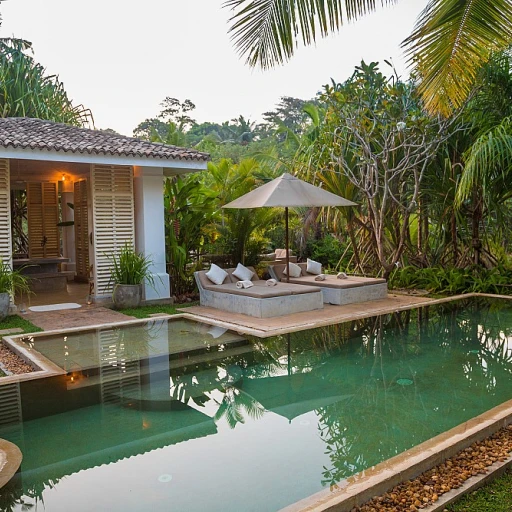

-large-teaser.webp)
